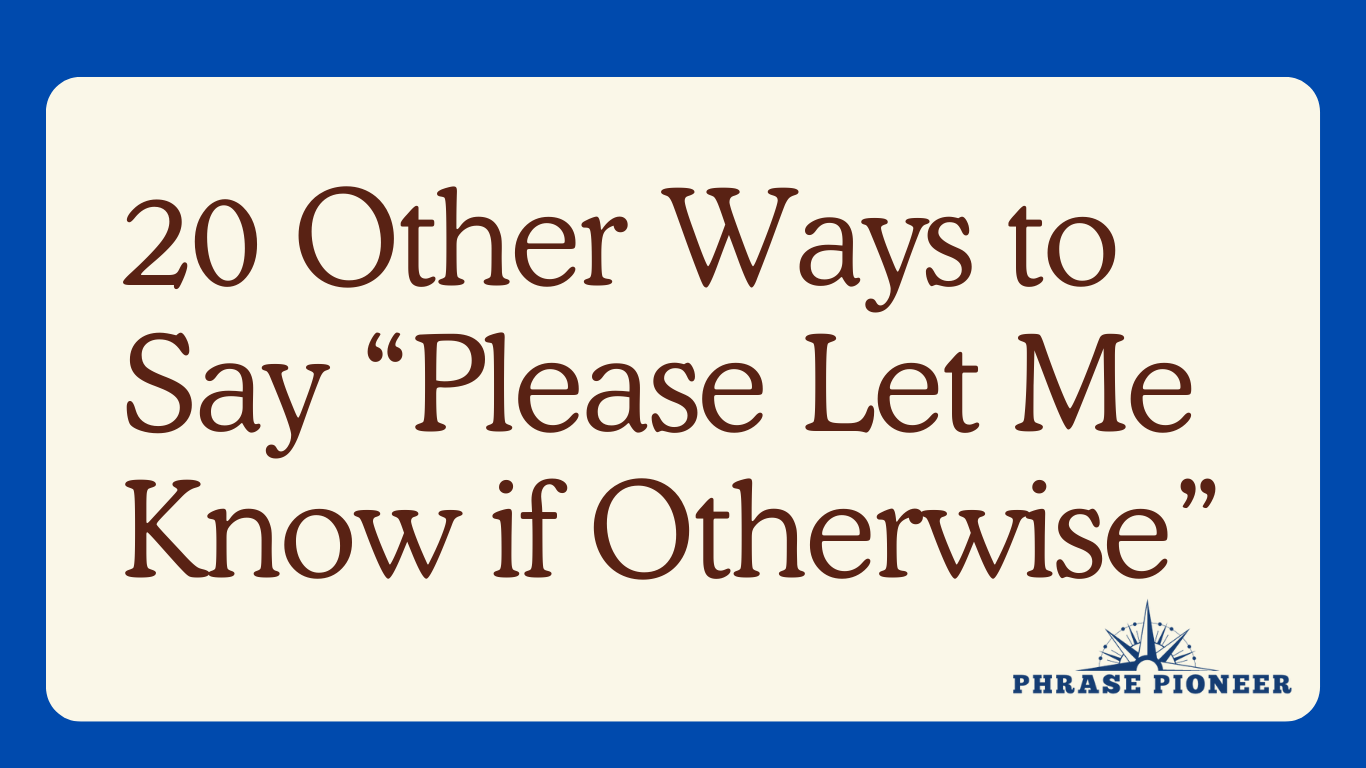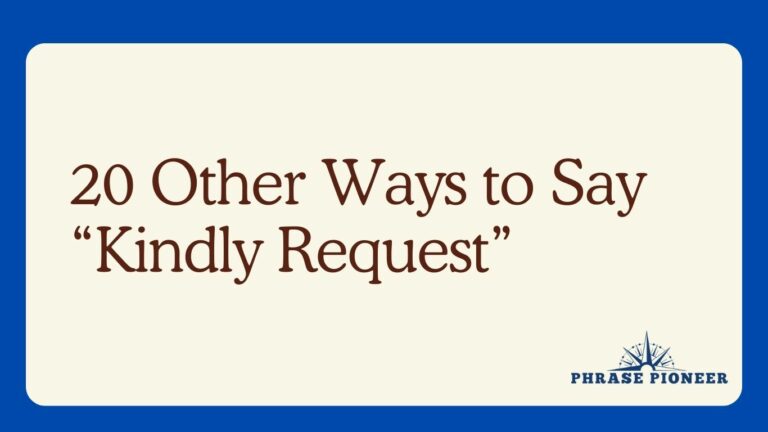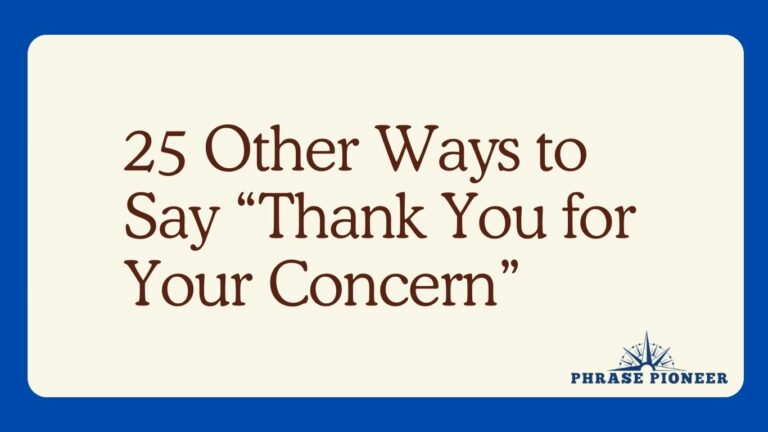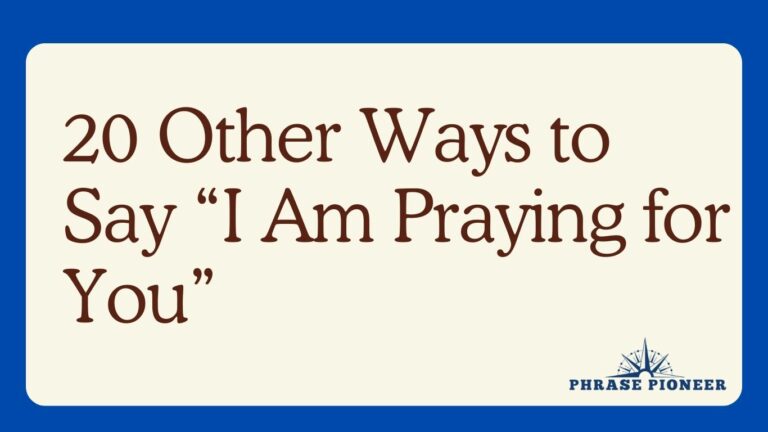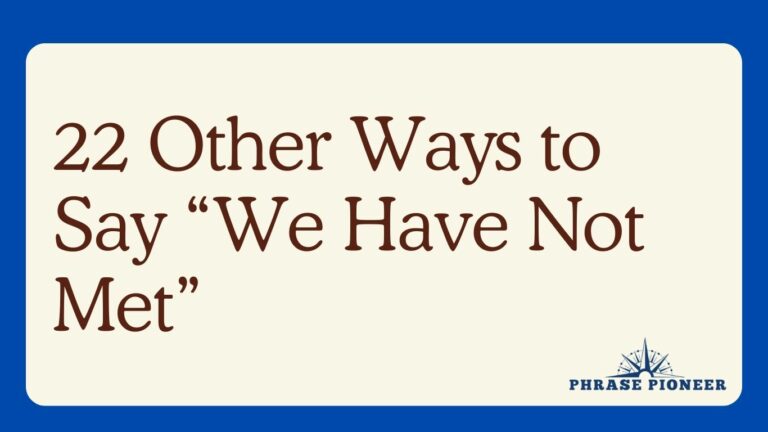20 Other Ways to Say “Please Let Me Know if Otherwise”
Sometimes, we want to express our openness to other opinions or the need for additional information in a polite and professional way. “Please let me know if otherwise” is a commonly used phrase to achieve this. Here, we’ll explore several alternatives to convey a similar message across various contexts and tones.
Formal Alternatives
1. Kindly inform me of any discrepancies.
Example: “Kindly inform me of any discrepancies in the report.” Explanation: This phrase maintains a professional tone and is suitable, for instance, in a business setting where accuracy is essential.
2. I would appreciate your input if there are any concerns.
Example: “I would appreciate your input if there are any concerns regarding the proposed timeline.” Explanation: This alternative indicates a polite request for feedback and shows respect for the other person’s perspective.
3. Please advise if there are any changes.
Example: “Please advise if there are any changes to the project requirements.” Explanation: This expression is business-like and is often used to request updates on a situation or instructions.
Friendly Alternatives
4. Feel free to update me.
Example: “Feel free to update me if the meeting time no longer works for you.” Explanation: This alternative presents a casual yet considerate request for new information if circumstances change.
5. I’m open to other suggestions.
Example: “I’ve planned our itinerary, but I’m open to other suggestions from the group.” Explanation: This sentence shows willingness to consider alternatives and encourages others to share their ideas.
6. Let me know if you think differently.
Example: “I believe this is the best course of action, but let me know if you think differently.” Explanation: This alternative is approachable and invites the recipient to share a contrasting viewpoint if they have one.
Polite Alternatives
7. I’d be grateful for your feedback should there be alternatives.
Example: “I’d be grateful for your feedback should there be alternatives to this approach.” Explanation: This is a polite and formal way of asking for feedback while showing appreciation in advance.
8. Do not hesitate to point out any variances.
Example: “Do not hesitate to point out any variances you might notice in the data.” Explanation: This phrase encourages the other party to communicate any differences or errors they find.
9. Your clarification would be beneficial.
Example: “If you have any updates regarding the policy, your clarification would be beneficial.” Explanation: This expression is polite and suggests that the recipient’s input would be helpful and valued.
Direct Alternatives
10. Inform me if that’s not the case.
Example: “I assume you’ll attend the seminar, so inform me if that’s not the case.” Explanation: This straightforward phrase asks for a correction to the speaker’s assumption if necessary.
11. Highlight if I’m mistaken.
Example: “I’ve completed the calculations; highlight if I’m mistaken.” Explanation: This choice of words straightforwardly invites the recipient to correct any errors.
12. Reach out if there’s a change.
Example: “We’ll proceed as planned unless you reach out if there’s a change.” Explanation: This is a direct request for the recipient to make contact if the current situation changes.
Alternative Questions
13. Could you let me know if the situation differs?
Example: “We based our analysis on these figures; could you let me know if the situation differs?” Explanation: This question formulates a polite inquiry about the current state and requests updates if necessary.
14. Is there an alternative I should consider?
Example: “I plan to use this marketing strategy; is there an alternative I should consider?” Explanation: This alternative poses a direct question, looking for additional options or strategies.
15. Would you mind updating me on any changes?
Example: “I’ve scheduled the conference room for our meeting, would you mind updating me on any changes?” Explanation: This question is a courteous way to ask for information if there are updates to be made.
Conditional Alternatives
16. If you have any objections, please inform me.
Example: “The terms are outlined in the contract; if you have any objections, please inform me.” Explanation: This phrase uses a conditional structure to request notification of disagreements or differing views.
17. Should you have further information, please share it.
Example: “Should you have further information on this issue, please share it at your earliest convenience.” Explanation: Here, the conditional ‘should’ indicates a polite yet formal request for additional information.
18. In the event that there are updates, I request to be notified.
Example: “In the event that there are updates to the guidelines, I request to be notified.” Explanation: This expression specifies a formal and official request to be kept informed of any developments.
Gentle Alternatives
19. I’d appreciate a heads-up in case there are any revisions.
Example: “We’ve finalized the design, but I’d appreciate a heads-up in case there are any revisions.” Explanation: This phrase is gentle in tone and indicates a request for preemptive communication.
20. It would help to know if there are any amendments.
Example: “I’m working with the current budget, so it would help to know if there are any amendments.” Explanation: This sentence softly asks for an update, implying that it would aid in the speaker’s task or planning.

